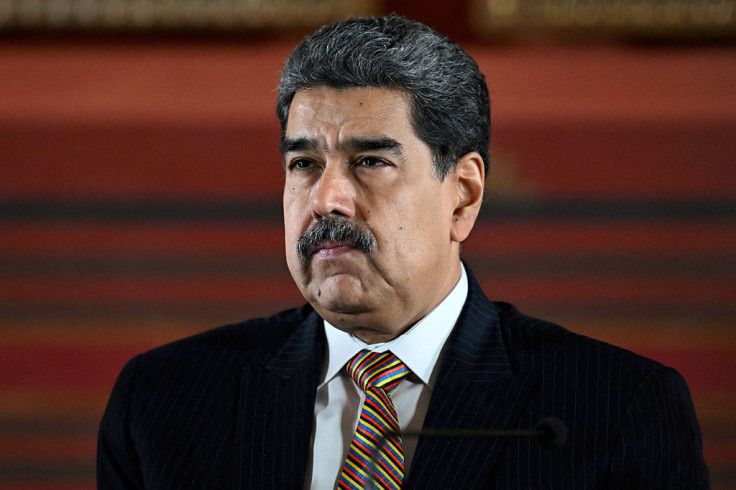
Venezuela's authoritarian President Nicolas Maduro is highly unlikely to be toppled by his own military despite increased pressure from the Trump administration, according to a new report.
The Wall Street Journal claimed that "in some ways, Maduro is more safely ensconced than ever" as a result of purging military members deemed disloyal and exiling opposition leaders."
The outlet went on to note that Maduro has surrounded himself with deputies who have their fates tied to him, including Defense Minister Vladimir Padrino Loprez. He has also promoted several generals over the past years, prioritizing loyalty over competence and allowing them to enrich themselves in different ways: "either paid off by drug trafficking groups to allow cocaine loads to" transit the country or "managing numerous state-run companies."
Maduro has also included Cuban counterintelligence officials and Venezuelan spies in the ranks, contributing to a climate of paranoia that makes plotting more difficult, the outlet said. This combination of factors has made all attempts to get the military to turn on Maduro to fail.
The WSJ recalled several instances in which the U.S. or opposition leaders made such attempts, including moving food supplies into the country. However, all international pressure failed to muster enough support to end the regime.
The Trump administration, however, is escalating pressure from the outside, with another report claiming that U.S. officials are seeking to convince Maduro that leaving power will be more costly than staying.
Citing "well-connected business people" inside the country, the Financial Times detailed that, as a result, Venezuelan leaders are increasingly paranoid and concerned about their personal safety.
The outlet noted that regime figures have changed their mobile phones, are sleeping in different cities every night and have changed their Cuban bodyguards for a new batch from Havana.
"Security protocol dictates that officials constantly move between different sites," a Venezuelan general told the outlet. He specified that regime figures are moving between Caracas, Valencia and Maracay.
Maduro has been seeking to appease Trump, most recently pleading for peace with the U.S. "We don't want war in the Caribbean and South America," Maduro said during a televised message. He then changed to English, saying: "Not war, yes peace. With the people of the United States. Please, please, please. Listen to me. From the people of the Bolivarian Republic."
The Trump administration, however, is ramping up pressure: On Thursday, the Washington Post reported that a Special Operations aviation unit has flown less than a 100 miles from Venezuela, yet another message to Caracas.
Moreover, the Miami Herald reported on Thursday that the Trump administration rejected an offer by the Venezuelan regime to oust Maduro and undergo a transition.
© 2025 Latin Times. All rights reserved. Do not reproduce without permission.





